Electrical Installations – Standards & Regulation around the World
Electrical Installations – Standards & Regulation in Different Countries
Introduction
The construction and the characteristics, performances and tests to be carried out on HV, MV and LV (HV: High Voltage; V ≥ 60 kV.MV: Medium Voltage; 1 kV < V< 60 kV. LV: Low Voltage; V ≤ 1 kV) installations, as well as the equipment used are subjected to national and international technical standards and regulations.
The same way the manual operation of the equipment, for maintenance or network reconfiguration purposes, and the obligations of the owners and the operation personnel, as well the procedures to be followed, the documentation to be produced, the safety precautions to be implemented, and the protection equipment and clothes that shall be used during the operation are regulated by national and international standards and national laws.
Wiring Regulations
Electrical Wiring Regulations are technical documents with an official character defining the characteristics and safety measurements to be followed during the design, construction and operation of an electrical power system.
Main Wiring Regulations in Several Countries
Main Wiring Regulations in several countries are:
Europe
Portugal
- Regras Técnicas das Instalações Eléctricas de Baixa Tensão (RTIEBT) – Low Voltage
- Regulamento de Segurança de Subestações e Postos de Transformação (RSSPT) – Substations
- Regulamento de Segurança de Linhas Eléctricas de Alta Tensão (RSLEAT) – EHV, HV and MV Over-headlines and Underground Cables
- Regulamento de Segurança de Redes de Distribuição de Energia Eléctrica em Baixa Tensão (RSRDEEBT) – Low Voltage Distribuition Networks (overheadlines and underground cables)
France: French Standards NF C 15-100 (Low Voltage) and NF C13-200 (High Voltage)
Germany: German Standards
United Kingdom: BS Standard 7671 (IET Wiring Regulations)
India, Pakistan, Bangladesh, Philippines & Other countries: IEC Standard 60364
United States of America
National Electrical Code (NEC) – NFPA Standard 70
Canada
Canadian Electrical Code (CSA C22), Part I to VI, and SPE-1000: Model Code for the Field Evaluation of Electrical Equipment
Middle East/Gulf Countries
Apart from the Kingdom of Saudi Arabia, these wiring regulations are mainly based on British Standard BS 7671.
- Dubai: Regulations for Electrical Installations by Dubai Electricity & Water Authority (DEWA)
- Abu Dhabi: Electricity Wiring Regulations
- Oman: Oman Electric Standards (OES)
- Qatar: Regulations for the Installation of Electrical Wiring, Electrical Equipment and Air Conditioning Equipment
- Bahrain: Electricity Regulations and Guide for Electrical Contractors
- Kuwait: Regulation for electrical installations MEW/R-1 to MEW/R-8 and MEW/S-1
- Kingdom of Saudi Arabia: Saudi Building Code (SBC) Requirements, Section 401 – Electrical (SBC 401)
Australia/New Zealand
Standard AS / NZS 3000:2007-Wiring Rules
Hong Kong
Code of Practice for the Electricity (Wiring) Regulations
Main Standards
Standards play an important role in electrical installations, since they provide a common language to everyone that is involved in the different phases of a project – design, manufacture, construction, testing and supervision.
Some of the main standards commonly used are:
International
- International Electrotechnical Commission (IEC)
- International Standards Organization (ISO)
Europe
- European Standards (EN)
- European Committee for Electrotechnical Standardization (CENELEC)
- Health and Safety Executive (HSE) – UK
- British Standards Institution (BSI) – UK
- French Standards (NF)
- Portuguese Standards (NP)
- German Standards (DIN and VDE)
- Italian Standards (UNI)
- Spanish Standards (AENOR)
United States of America
- American National Standards Institute (ANSI)
- Inter National Electrical Testing Association (NETA)
- Institute of Electrical and Electronic Engineers (IEEE)
- American Society for Testing and Materials (ASTM)
- National Electrical Manufacturers Association (NEMA)
- National Fire Protection Association (NFPA)
- Underwriters Laboratory (UL)
- Factory Mutual (FM)
- Occupational Safety and Health Administration (OSHA)
Click image to enlarge
Canada
- Canadian Standards (CEA)
Brazil
- Brazilian Standards ( NRB / ABNT )
Australia and New Zealand
- Australian and New Zealand Standards ( AS / NZS )
China
Following is the wiring color codes for different countries according to their local area regulations.
Click image to enlarge
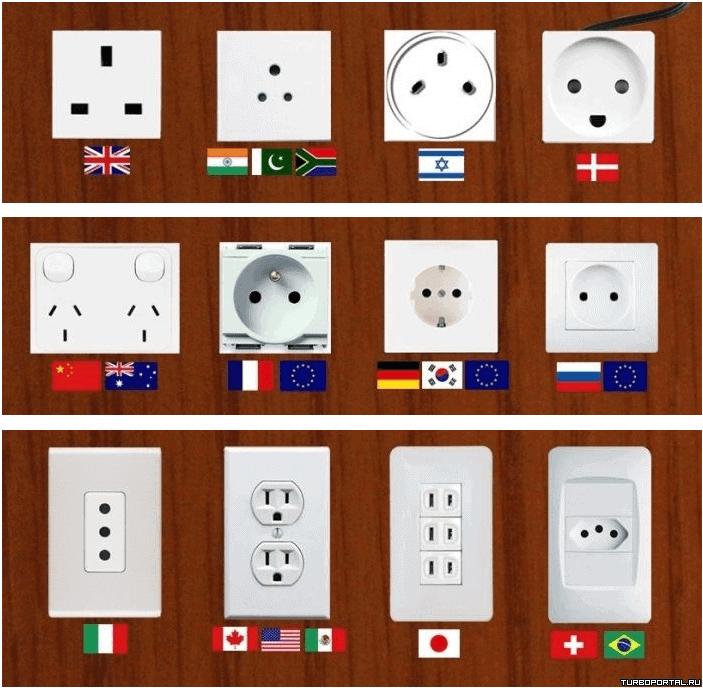

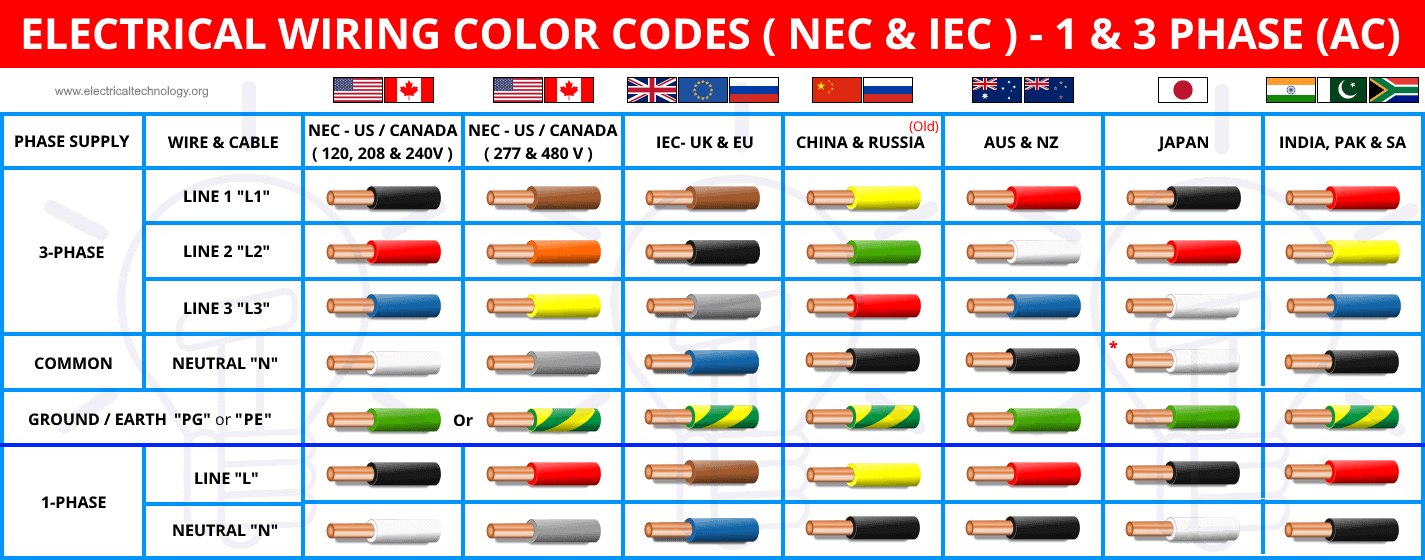


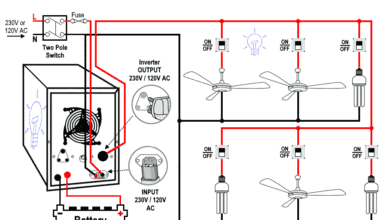
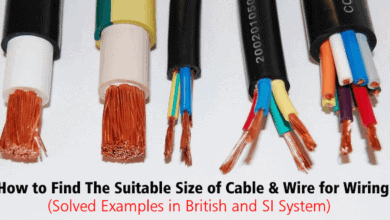
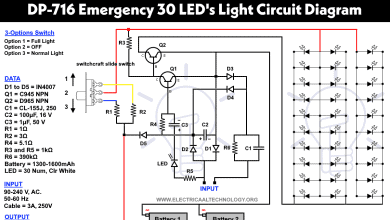

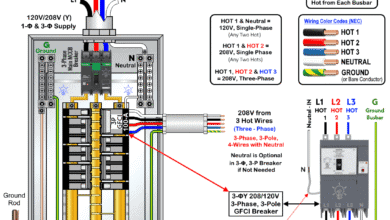
kindly electrical standard regulation rules
Interesting Electrical Engineering Information. Please keep up the good work.
Nice and Clear explanation. Thanks